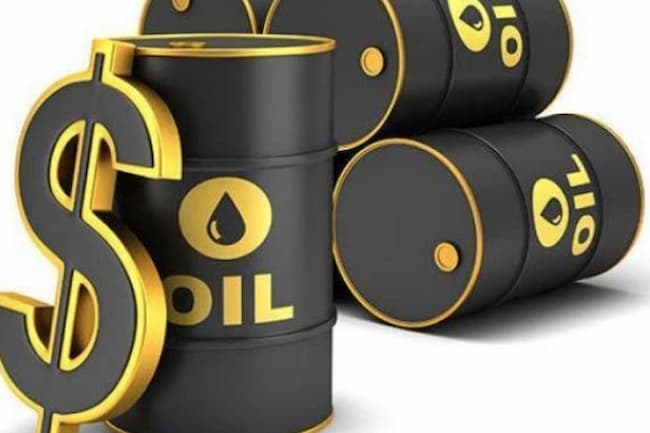The Nigeria Government has failed to make oil revenue savings into the Excess Crude Account (ECA) despite increase in global oil price.
Conversely, withdrawals have been made from the account, which saw it being depleted by $11.56 million from $72.41 million in April to $60.85 million in May 2021.
Before the latest deduction, the cash balance in Nigeria’s Excess Crude Account (ECA) was the same for more than six months despite the increase in global oil prices.
The ECA is a stabilisation fund introduced by former President Olusegun Obasanjo to hold proceeds of oil sales at prices above the oil benchmark price.
The Minister of Finance, Mrs Zainab Ahmed, during a National Economic Council Meeting in July last year said the ECA only held $72.41 million, which is the same balance as of March 16, 2021.
Since, early last year when the international oil prices plunged to a record low and oil revenue could not support the budget, withdrawals were made from the oil savings, which saw it declined by as much as 77.7 percent from $324.54 million in November 2019.
READ ALSO: Communications Ministry Recorded Over N1trn Revenue In 2 years – Pantami
However, with the oil price benchmark for Nigeria’s 2021 budget pegged at $40 per barrel but oil selling at more than $60 per barrel, the excess revenue is expected to be saved in the ECA.
While the official foreign exchange has remained relatively stable N379/$, the oil prices have consistently been selling above $40 per barrel since the beginning of the year.
The lowest price of Brent Crude which Nigeria’s oil is benchmarked against was $52.09 per barrel on January 4, 2021 and it has reached a peak of $70 per barrel in March.
In February, the average price of Brent rose by 12.49 per cent to $62.06 per barrel from $55.17 per barrel in January. Oil prices maintained an increasing trend to close the month at $66.00 per barrel. This was driven by tight global supply, concerns due to the bad weather in the US, increased vaccine rollout and on the recovery in Asia’s fuel demand.
In March, oil prices continued to maintain the upward trend to $67.85 per barrel on March 5 following OPEC+ decision to extend its output cut (7.2mbpd) until April with some exceptions to Russia and Kazakhstan before rising to $70.44 per barrel on March 8.
In April, one barrel of crude oil sold for an average price of $64.8; $68.53 in May and $73.16 in June 2021.
In July 2021, the average price of one barrel of Brent Crude oil was $75.17, which is about $30 higher than the average monthly price one year prior, with prices having notably recovered from the 2020 coronavirus slump.
What You Should Know About ECA
The ECA was created to cushion the effect of the economic headwinds.
The excess oil proceeds are saved and managed in order to improve the stability of the economy when oil price plunge in the international market.
It is a common practice in resource-rich countries like Nigeria to have a natural resource fund to support budget deficit.
There is an ongoing debate as to legal status and the constitutional place of the Ministry of Finance in operating both the Federation Accounts Allocation Committee (FAAC) and the ECA.
Allegations Of Mismanagement Of Oil Savings
The government has been in the practice of making withdrawals from the ECA, especially during elections, which it has not accounted for. Between 2007 and 2014, there was an upward trend in withdrawals from the ECA.
READ ALSO: NARD Stalls Signing New MoU With FG, Says Need To Consult With Members
Controversy continued to trail the $1 billion withdrawn by President Muhammadu Buhari from the ECA in 2017, which he claimed was military spending to fight Boko Haram.
After much pressure and allegations that the money was mismanaged, the Federal Government through the Senior Special Assistant to the President on Media and Publicity, Garba Shehu, released details of how the $1 billion was spent.
Shehu said the money was not released to the Defence ministry but kept in an account with the Central Bank of Nigeria.
“The record we have is that the Buhari’s administration paid $496,374,470 for a dozen Super Tucano fighter aircraft for the Air Force in a direct, government-to-government – no contractors or commission agents – transaction with the government of the United States of America. They are due for delivery in 2020,” he said.
“Various other military procurements for critical equipment have been made. These are for the Nigerian Army and the Nigerian Navy, amounting to $380,513,958,71.
“These procurements include money for the purchase of Navy Lynx helicopters. Total amount spent so far is $876,888,428.71. The equipment paid for have due dates of delivery of between six months to two years.
“In cases where the Nigerian government dealt with equipment manufacturers, their home governments have in all cases given guarantees to the federal government.
Earlier this year, the Rivers State Governor, Nyesom Wike, declared that Rivers State would contest Nigeria Governors’ Forum’s (NGF) endorsement of fresh withdrawal by the Federal Government from the Excess Crude Account (ECA).
The governor demanded to know what happened to the $1 billion withdrawn from the ECA in 2017 under the guise that it would be used to fund the fight against Boko Haram insurgents in the Northeast.
He stated that he would not support the plan for a fresh withdrawal except Rivers State is given its 13 per cent share from the account.
“Yesterday, I was told that the governors agreed that they will take money from the ECA to support the military. What of the one they took before, the $1billion that they gave to the military? Where is the equipment that we bought?
“If I should release that money as the Chief Security Officer, knowing how Nigeria is, I will make sure that those weapons and the right ones were bought.
“Now again! This one, I will tell my Attorney General; you will have to prepare, we will go to court. I will not support that one except they will give us our 13 percent first from that ECA,” he said.












